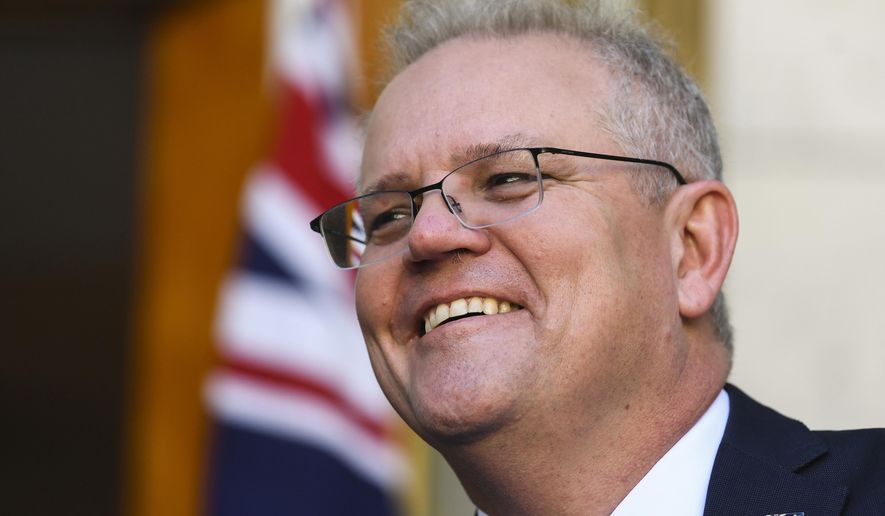CANBERRA, Australia (AP) - The Australian government will have the power to cancel deals struck with foreign nations by lower levels of government if it decide they violate the national interest under laws it will propose next week, officials said Thursday, as China warned against disrupting cooperation.
An agreement signed by the southern state of Victoria with Beijing’s Belt and Road Initiative to build trade-related infrastructure is among 135 deals with 30 countries that need to be reviewed, said Foreign Minister Marise Payne.
China is Australia’s biggest trading partner, but Australian leaders are sensitive about Chinese political and economic influence. This week, regulators blocked a Chinese company’s purchase of Japanese brewer Kirin’s Australian beverage unit as “contrary to the national interest.”
Prime Minister Scott Morrison declined to comment on whether the Belt and Road deal might be scrapped.
The Chinese foreign ministry cautioned against disrupting “successful pragmatic cooperation” with Victoria.
“Australia should see two sides’ cooperation under the BRI in an objective and reasonable manner and not set obstacles artificially for normal exchanges and cooperation,” said a ministry spokesman, Zhao Lijian, in Beijing.
Morrison said the legislation doesn’t target China.
“My biggest concern is Australia’s national sovereign interest,” he told reporters.
Australia in 2018 passed sweeping national security laws that ban covert foreign interference in domestic politics. Beijing protested that the laws were prejudiced against China and poisoned Chinese-Australian relations.
On Thursday, Attorney-General Christian Porter told Parliament the first investigations were being conducted in New South Wales state under those laws. They carry penalties including up to 20 years in prison.
Two entities have been formally asked why they failed to register as agents for a foreign principal, Porter said. He did not identify the entities or the countries they are suspected of acting for.
The proposed legislation would give Payne power to scrap international deals struck by state governments, public institutions such as universities and sister-city partnerships.
Future deals would need federal approval and could be revoked.
The recent decision to block the $430 million sale of Kirin’s dairy business, Lion Dairy and Drinks, to China Mengniu Dairy Co. was unusual because it involved the transfer of an asset that already was foreign-owned.
Lawmakers worry Victoria’s memorandum of understanding with Beijing could increase Chinese interference in Australia’s second-most-populous state.
The state pursued the deal despite the federal government’s stance that “Australia was not going to commit itself to those types of arrangements,” said Peter Jennings, executive director of the Australian Strategic Policy Institute think tank.
“I just don’t see that that is something that should be sustainable,” Jennings added.
James Laurenceson, director of University of Technology Sydney’s Australia-China Relations Institute, questioned whether the proposed legislation was an overreaction.
“We know the Australian government has been running a very tough line on China, that’s been consistent and it hasn’t been affected by the belt and road memorandum of understanding at all,” Laurenceson said.




Please read our comment policy before commenting.